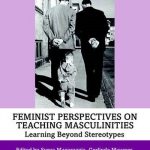 Institut für Mittelalterliche Geschichte der Philipps-Univ. Marburg (Web) und Akad. der Wissenschaften und der Literatur Mainz: Projekt „Regesta Imperii“ (Web)
Institut für Mittelalterliche Geschichte der Philipps-Univ. Marburg (Web) und Akad. der Wissenschaften und der Literatur Mainz: Projekt „Regesta Imperii“ (Web)
Zeit: 29.-30.09.2022
Ort: Philipps-Universität Marburg
Einreichfrist: 25.03.2022
Das Konzept „Ehe“ existiert seit jeher über unzählige Kultur- und Epochengrenzen hinweg. Sie wird romantisiert und emotionalisiert, aber – gerade im Mittelalter – auch als rechtliches und politisches Mittel genutzt. Dabei hat sich unser Bild von der Ehe im Früh- und Hochmittelalter in den letzten 15 bis 20 Jahren wesentlich geändert. Zentrale Aspekte des Themas Ehe, wie die Ausweitung des Inzestverbots, das „Konkubinat“ und die „Friedelehe“ wurden einer Neubewertung unterzogen und wirkmächtige Forschungskonstrukte revidiert. Daran knüpft diese Tagung an, die sich der „Ehe“ in der Zeit von ca. 500 bis 1250 widmen und methodisch und inhaltlich neue Perspektiven entwickeln möchte.
Der Begriff „Ehe“ oder auch „Ehelichkeit“ wird dabei weit gefasst, um eine vielfältige Bandbreite an Fragen aufzugreifen. Untersuchungsfelder sind die Ehe als Mittel politischer Allianzen, die Strategien und Planungen von Eheschließungen sowie die daran beteiligten Akteure und Netzwerke. Des Weiteren sollen auch Aspekte untersucht werden, die soziale und rechtliche Normen betreffen wie beispielsweise Bigamie, außereheliche Beziehungen und Ehebruch, Scheidung und Wiederheirat. Schließlich sollen auch ethische Fragen nach der sexuellen Enthaltsamkeit und Keuschheit sowie die bewusste Entscheidung für Ehelosigkeit, etwa im Rahmen des Priesterzölibats, diskutiert werden.
Die Veranstalter:innen laden herzlich ein, zu diesen Untersuchungsfeldern Vorschläge für Vorträge (auf Deutsch oder Englisch) von ca. 30 Minuten einzureichen. Senden Sie ein Abstract im Umfang von ca. 200-300 Wörtern zusammen mit einem kurzen Lebenslauf bis Freitag, 25. März 2022 zu. Die Tagung wird vom 29.–30. September 2022 an der Philipps-Universität Marburg stattfinden, die anschließende Publikation der Beiträge ist vorgesehen.
Kontakt: Magdalena-Maria Berkes, Philipps-Universität Marburg, Wilhelm-Röpke-Straße 6, 35032 Marburg, E-Mail: magdalena-maria.berkes@uni-marburg.de
Quelle: Hsozukult


 Genesis. Journal of the Società Italiana delle Storiche; Anna Bellavitis and Monica Martinat
Genesis. Journal of the Società Italiana delle Storiche; Anna Bellavitis and Monica Martinat 





